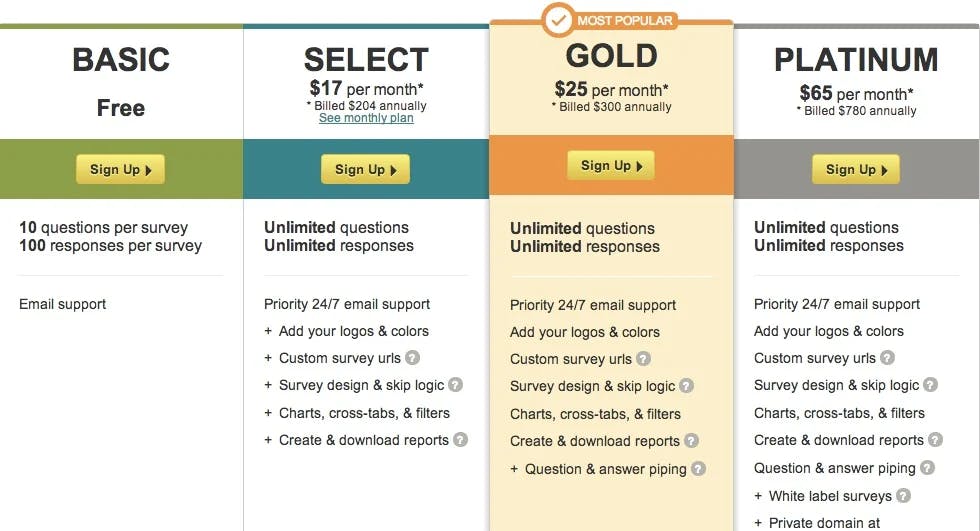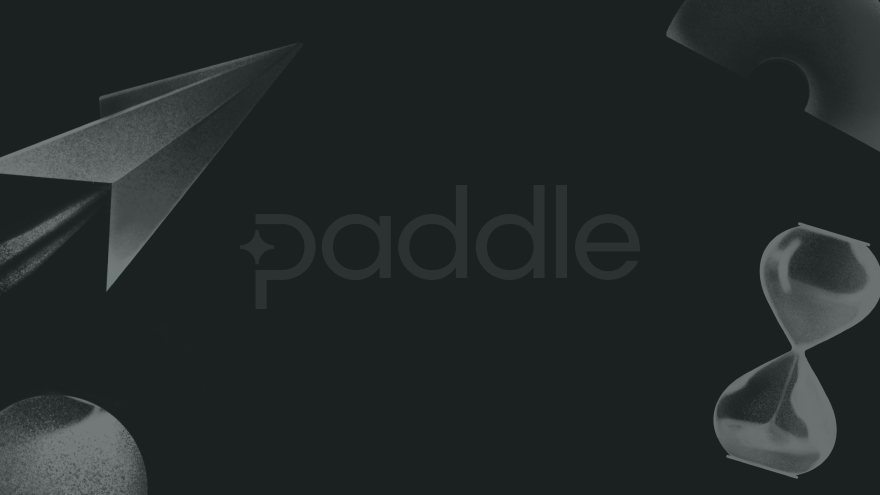What is prestige pricing in marketing?
Prestige pricing is a pricing strategy that uses higher prices to suggest quality and exclusivity. This practice is commonly seen among luxury brands and fine restaurants.
While establishing a higher price for your product can make it seem more exclusive and high quality, if you don’t have anything special or unique about your product then this can backfire by attracting fewer customers.
Does prestige pricing work?
The theory is that customers will pay higher prices for the right image and won’t investigate whether the price accurately reflects the value. A prestige pricing strategy has the ability to give companies a psychological marketing advantage by convincing customers there is added value for the cost, and it takes advantage of the buyer’s assumption that one brand’s product is of a higher quality than the competitors because it costs more.
Which brands make use of a prestige pricing strategy?
There are many examples of companies and brands that use a prestige pricing strategy to leverage their products. Luxury car companies are notorious for jacking up prices on high end vehicles. A Toyota Camry or a Honda Civic will get you from point A to point B just as well as a Bentley or a BMW, but customers who value driving around in fancy automobiles probably wouldn’t tolerate driving an entry level sedan as their main mode of transportation.
A Rolex watch can cost well over ten grand depending on the amount of embedded bling, but you can purchase a Timex watch with twice as many features for around $28 or less. They both tell the time, but it’s obvious that the Rolex is a status symbol that appeals to their customers because it displays their financial success in addition to the correct time. These prestige pricing examples depict that value is in the brand, not the functionality of the product, and you can’t blame companies for setting high prices to reinforce the perceived value they offer their customers.
Prestige pricing strategy example: Nike
Nike is a perfect example of a company that effectively uses prestige pricing, which is a pricing strategy where prices are set higher than normal because lower prices will actually hurt sales. If customers value the image of your brand and the features of your product over those of your competitors, then prestige pricing (also known as image pricing) can help you capture value despite the production costs or quality of the product.
I used to pay top dollar for sneakers. If Nike put out a limited run of hi top Dunks in an attractive colorway I was all over it, and more likely than not the amount I paid just to get my hands on them was far beyond what they were worth. A similar pair of sneakers by a lesser known brand might cost $30 less (I never pitched a tent in front of boutique shoe stores just to wait all night for super expensive kicks), but I had to have that instantly recognizable Nike swoosh on the side of my shoes or I wouldn’t feel satisfied.
So how could I shell out so much cash for premium sneakers? After all, they didn’t even fit my humongous feet (size 13 wide, it’s a curse). My only explanation is that I valued the Nike brand more than the actual functionality or quality of the product, and it didn’t matter how expensive the shoes were. In fact I’m not sure I would have been quite as interested if the price was lower.
How can I use prestige pricing?
Don’t worry, we know most of you aren’t marketing or selling hot kicks. Prestige pricing is used by businesses of all types to appeal to customers’ sense of value and increase profits, and you don’t have to be the proprietor of a legendary brand to use this strategy effectively. There are great ways to use high prices as a guide towards more realistic sales as well as a method for communicating value. Let’s take a look at a few of the tricks.
1. Create an enterprise tier (whether you have an enterprise product or not)
One way your business can use prestige pricing is to create an expensive enterprise tier on your pricing page, even if it isn’t real! Eric has discussed this strategy of price anchoring before, and it’s an effective way to increase the perceived value of your offering and your revenue stream.
For example, if you’re selling a SaaS product that costs $50 per month, you can create an enterprise tier that costs $300 per month with a few additional features like more storage or unlimited users. The enterprise tier will be out of reach for most of your potential buyers, but it will serve as an anchor that guides them to the $50 product. Just remember to include the right features in the target product so that it’s an ideal purchase for your customers as well as your business. In this case, the enterprise tier is there to persuade customers the $50 tier is a great deal, and shouldn’t bear any superior features that your prospects will be attracted to but unable to afford.
2. Create prestigious image for your brand (and the right environment)
A crucial factor in reinforcing higher prices is creating a prestigious image for your company from the ground up. If you can improve the customer experience with the right environment and consistent, great service, then your company will convey an image that proves your product is a great value at a higher price than your competitors.
Building your product value is essential before you consider offering a prestige pricing plan, as you’ll need to secure considerable buy-in from customers. The key is to be consistent with what you promise to your customers. Charging higher rates won’t succeed unless you deliver the goods based on your core value proposition and a clear message. That being said, it doesn’t hurt to look the part if your target customers are high rollers, and if your office has upscale furniture and a swanky conference room (maybe a nice bar too), your clients will leave with a lasting impression of luxury and sophistication. Your website team photos can incorporate the same tactics. If every team member is dressed in fine suits, either for individual or group photos, your company will look professional and experienced to potential customers. This can also work especially well if you have an outbound sales team pushing high end products to vendors and distributors. Combine this apparent luxury image with great customer service, and justifying those prestige prices will be that much easier.
3. Give your price the right image
The actual appearance of your published prices can have subconscious effects on your potential customers that increase sales. In some cases, smaller details like ending your prices in 0’s or 5’s and avoiding decimal pricing can justify a higher price by presenting an image of higher quality. This type of psychological pricing strategy is used in high end restaurants all the time, and you rarely see a price like “8.99” for a meal unless you’re in a chain or franchise establishment. Prices ending in 9 are meant to persuade consumers they’re getting a bargain, but prices consisting of round numbers (no cents, no decimals) can subliminally convince customers that your company has integrity and your product is sophisticated. In other words, it’s worth the high price they pay.
The design of your pricing page can also create the right image for your prices and increase perceived value. One company that optimized their pricing in this way is Survey Monkey, which offers a comprehensive software survey tool.

Their pricing page advertises the $25 per month Gold tier as the most popular, and used color differentiation and a slightly larger pricing bracket for added emphasis (see our post on pricing page design tactics). The Select tier below it has all but one of the features included in Gold, but it’s priced $8 less at $17 per month. Despite the lack of feature differentiation, customers are nonetheless attracted to the more expensive Gold version because it looks like the best option. The Gold bracket’s perceived value is further increased by a $65 per month option positioned to its right that serves as a price anchor. Most customers would probably be satisfied with the Select option, but the key design elements and the price anchor help SurveyMonkey persuade customers to go for Gold.
Prestige pricing: Consistency is key
The keys to maintaining both credibility and higher margins are the same: be consistent and avoid discounts that hurt the bottom line. The software space is no place for slashing prices to make quick conversions; doing so will lead to an undervalued product and poor future sales. (For more on discounts, see our post How Discounting is Killing Your Pricing Strategy). Build trust and forge customer relationships with optimal prices that reflect the work you’ve put into the business, and you’ll soon overwhelm the competition.
To learn more about pricing specifics, check out our Pricing Strategy ebook, our Pricing Page Bootcamp, or learn more about our price optimization software. We're here to help!
Prestige Pricing FAQs
What are the limitations of prestige pricing?
While there are some of the limitations of prestige pricing, it's entirely possible to overcome these with the right strategic approach in place.
More budget is required for implementation
Portraying your prestige pricing model to consumers will require a degree of consideration when it comes to the marketing that'll support this positioning. Depending on your business' circumstances, you may need to consider putting more budget aside for in-house marketing efforts or for outsourcing to an agency provider. Creating compelling marketing campaigns could be the key to ensuring your prestige pricing model succeeds, but it could also serve as a hinderance if you do not have these foundations in place when unleashing your new strategy.
Your sales volume may fall
Increasing the price of your product can inevitably lead to a loss of sales volume. While your consumers may still be invested in your business as a service provider and you will likely make more profit per sale, it's worthwhile carrying our some calculations to ensure your overall profit won't be hit by the drop in volume.
You risk falling out of touch with your target audience
Of course, loyal customers may simply see your prestige pricing plan as testament to the level and quality of the services that you provide, but it may also generate a sense of disillusionment. A solution for this is to be proactive in terms of reviewing your value proposition, and where necessary, you may need to identify new audience segments that are better aligned with the aims of your prestige pricing strategy.
Is prestige pricing a sustainable strategy?
As the above considerations collectively suggest, there is a potential element of risk with a prestige pricing model. In certain scenarios, it may seem like businesses are gambling on their luxury proposition alone to see a surge in profit margin, while also contending with the limitations outlined above.
Does prestige pricing suit every brand?
In order to implement an impactful prestige pricing model. your product or service needs to have a substantial level of fame within your target market. A prestige pricing strategy is intended to communicate luxury, so whether or not your product can be perceived as a desirable asset to the consumer will determine whether prestige pricing is right for you, or if there are other pricing models that would yield a more measurable impact.



